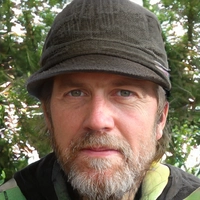- Home
- Entertainment
- Eagles’ Vegas Residency Relies on Fourier Audio’s transform.engine to Preserve Iconic Harmonies
Eagles’ Vegas Residency Relies on Fourier Audio’s transform.engine to Preserve Iconic Harmonies
When the Eagles took the stage at the Las Vegas Sphere in September 2024, they didn’t just bring their guitars and harmonies—they brought a sonic secret weapon. For the first time in their 50-year career, the band’s legendary vocal blend, honed over decades of touring, faced a new kind of threat: an acoustic environment designed to break conventional sound rules. Enter Fourier Audio’s transform.engine, the live audio platform quietly saving the day—and the harmonies—on every show.
The Problem: A Venue That Hates Legacy Sound
The Las Vegas Sphere isn’t just big. It’s a 580-foot-wide dome covered in 160,000 square feet of LED screen, with a 42-zone immersive sound system where the main speakers hang behind the stage. For most artists, that’s a dream. For the Eagles? A nightmare.Front of House engineer Tom Evans, who’s been mixing the band since 2017, knew the risks. The Eagles’ sound is built on tight, layered vocals—Don Henley’s gravelly lead, Joe Walsh’s gritty harmonies, Timothy B. Schmit’s bass tones, Vince Gill’s crystal clarity, and Deacon Frey’s emotional resonance. These aren’t just notes; they’re a family reunion in sound. But the Sphere’s rear-mounted PA created feedback loops, especially at 4kHz, where the human voice is most vulnerable. A single squeal could shatter the magic.
"I’ve got eight vocal mics on that stage," Evans told AVNetwork. "And every one of them was screaming at me. Not from volume—because we’re not loud. From phase and reflection. The room was fighting us."
The Solution: Studio Tools in a Live Arena
Evans didn’t reach for a new console. He didn’t rip out his 15-year-old signal chain. Instead, he turned to Fourier Audio’s transform.engine—a platform that lets live engineers insert studio-grade VST3 plugins into their live mix with near-zero latency.During rehearsals in the Sphere’s acoustic replica room, Evans loaded two plugins into the transform.engine: the NR800 noise reduction tool and McDSP’s NF575 notch filter. He didn’t just mute the 4kHz problem—he surgically carved it out, note by note, without touching his beloved analog compressors or reverbs. "I kept all my outboard gear. My Lexicon, my Empirical Labs, my API preamps," Evans said. "The transform.engine didn’t replace my workflow. It became the scalpel within it."
The result? No audible delay. No reconfiguration of his console. Just seamless, surgical correction. "I don’t have to do any significant temporal compensation," he added. "It’s like the plugins were born in this system."
![]()
Why This Matters Beyond the Eagles
This isn’t just about one band. It’s about the future of live sound for legacy acts. Artists like the Eagles, Pink Floyd, or Fleetwood Mac built their reputations on sonic precision. But modern venues don’t respect that. They demand immersion, not tradition. The Las Vegas Sphere is the future. And Fourier Audio just proved that legacy sound can survive it.What’s more, this isn’t a one-off. Fourier Audio, acquired by DiGiCo and Audiotonix in 2023, is already powering Coldplay’s Music of the Spheres World Tour and Volbeat’s global run. Their transform.suite '25 includes 70+ plugins from brands like Waves, FabFilter, and Soundtoys—tools once locked in studios, now live on stage.
The US-based Fourier Audio support team worked side-by-side with Evans for weeks before the residency opened, mapping the Sphere’s acoustic fingerprints and tuning the plugins to match the Eagles’ exact vocal chain. That level of customization? Unheard of in live audio two years ago.
The Bigger Picture: Artistic Integrity vs. Technological Overload
Many venues chase spectacle. The Sphere’s LED ceiling can simulate a supernova. But the Eagles’ fans don’t come for the stars. They come for the harmony. They come for Henley’s whisper on "Desperado," for Schmit’s bassline on "Take It to the Limit," for Walsh’s guitar cry on "Life in the Fast Lane."Fourier Audio’s technology didn’t try to reinvent the Eagles. It protected them. That’s the quiet revolution here: tech that serves art, not the other way around.
By February 2026, when the final note fades at the Las Vegas Sphere, the Eagles will have played 52 shows. And for every single one, their voices—untouched by digital compromise—will have floated through that dome, exactly as they always have. Just now, they’re doing it in a venue that shouldn’t let them.
What’s Next?
Fourier Audio is already in talks with other legacy acts planning Sphere residencies. Rumors suggest Steely Dan and Fleetwood Mac are testing the system. Meanwhile, the company’s plug-in library is expanding, with new tools for live orchestral integration and vocal de-essing specifically designed for multi-mic ensembles.For Evans, the win isn’t the press release. It’s the silence. "I don’t hear feedback anymore," he said. "And that’s the loudest sound of all."
Frequently Asked Questions
How does transform.engine avoid latency in live sound?
transform.engine uses a proprietary low-latency audio engine built into DiGiCo’s Quantum852 and Quantum752 consoles, allowing VST3 plugins to run with under 1.5ms of delay—barely perceptible to human ears. This is achieved by bypassing traditional audio interface bottlenecks and integrating directly with the console’s DSP architecture, making it feel like native processing.
Why couldn’t the Eagles just use their usual gear at the Sphere?
The Sphere’s rear-mounted PA and reflective dome create complex phase cancellations and feedback loops that don’t exist in traditional venues. Even with top-tier outboard gear, the 4kHz feedback frequency would overwhelm vocal mics. transform.engine allowed Evans to surgically remove that frequency without altering his entire signal chain, something traditional EQs or feedback suppressors couldn’t do without muddying the harmonies.
What makes the Las Vegas Sphere so acoustically challenging?
With 42 independent speaker zones and a 160,000 sq ft LED surface that reflects sound unpredictably, the Sphere creates a sonic environment unlike any other. Sound waves bounce off curved surfaces and intersect in ways that create standing waves and null points. Most venues have a "sweet spot"—the Sphere has hundreds, and they shift with audience density. This demands real-time, dynamic audio correction.
Is transform.engine being used by other major artists?
Yes. FOH engineer Dan Green uses it for Coldplay’s Music of the Spheres Tour, and Dennie Miller runs it for Volbeat’s global shows. It’s also deployed in Broadway productions like Hadestown and West End shows like Les Misérables. The platform’s ability to integrate studio plugins into live environments makes it ideal for artists with complex, layered sound designs.
How did Fourier Audio become part of DiGiCo and Audiotonix?
Fourier Audio, a UK-based startup founded in 2020, was acquired by Audiotonix (parent company of DiGiCo) in 2023 to strengthen its live audio software offerings. The acquisition gave Fourier access to DiGiCo’s console hardware, global support network, and engineering resources—critical for deploying transform.engine in high-stakes environments like the Sphere.
Will this technology replace traditional live mixing?
No. transform.engine enhances, not replaces. Engineers like Tom Evans still rely on analog gear, outboard compressors, and years of experience. The platform simply adds surgical precision where traditional tools fall short—like removing a feedback frequency without affecting vocal warmth. It’s the difference between a painter using a brush and a digital retouch tool—both are essential, but for different reasons.

Damien Lockwood
Hi, I'm Damien Lockwood, a sports enthusiast with a deep passion for running and cycling. I've spent years honing my skills and understanding the mechanics behind these disciplines. Apart from participating in various marathons and races, I also love sharing my experiences and valuable insights through my writings. My goal is to inspire and encourage people to embrace a healthy lifestyle by engaging in physical activities they enjoy.
About
Welcome to IdentiSports UK Hub, your ultimate destination for all things running and cycling in the United Kingdom. Discover the latest news, events, and tips to help you improve your performance and stay connected with the vibrant sports community. Join us now and unleash your true potential!
